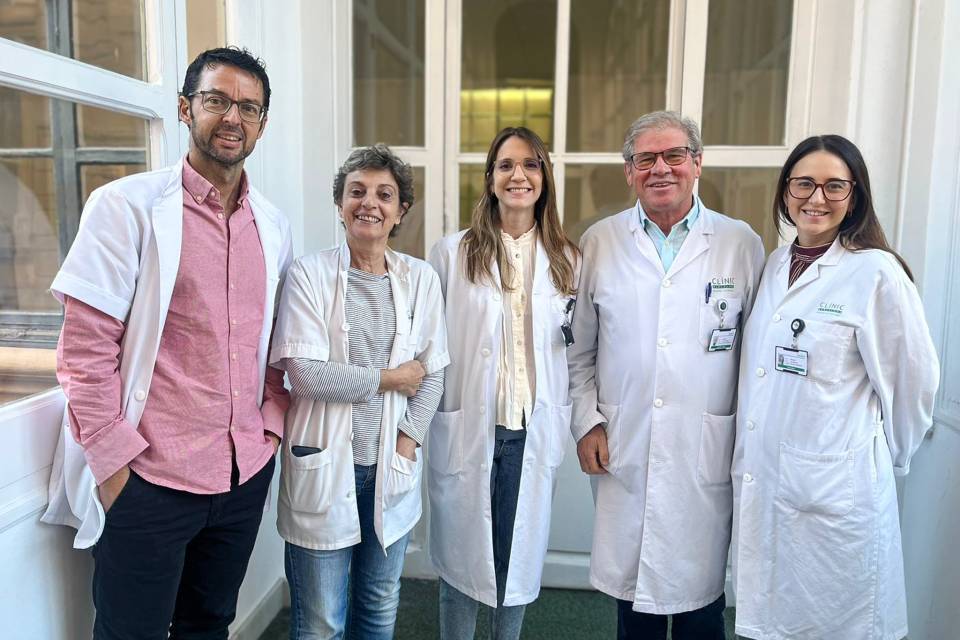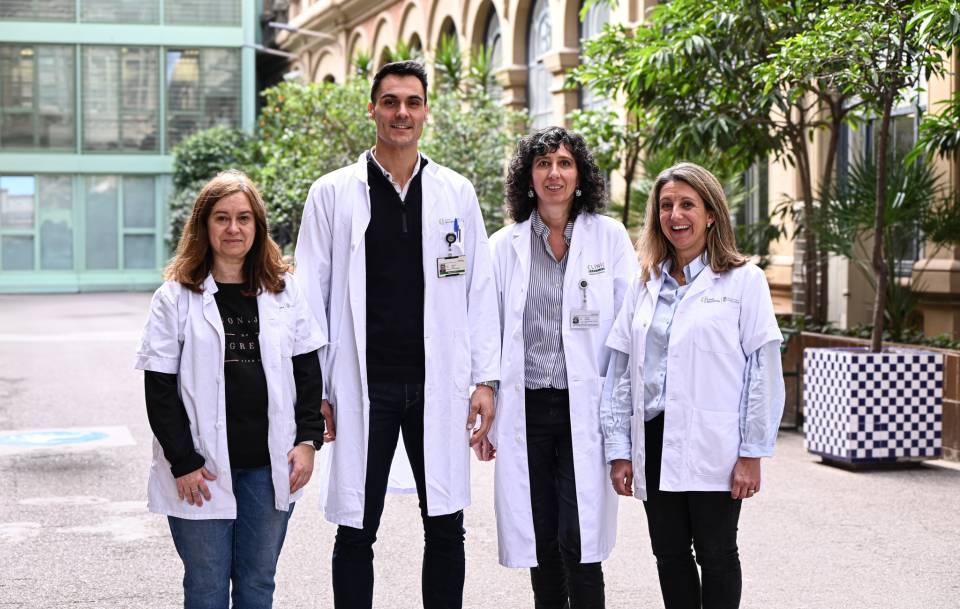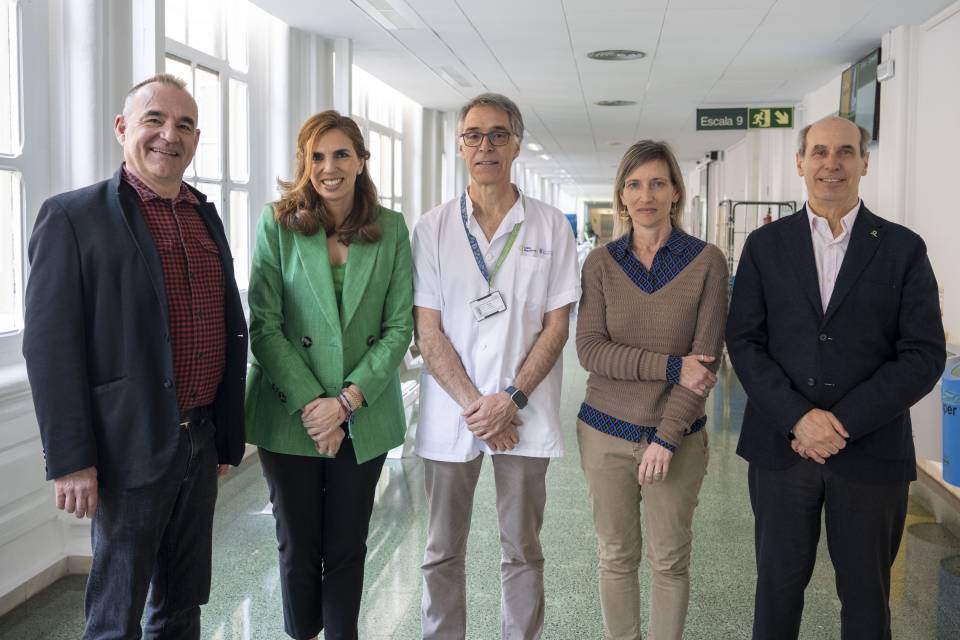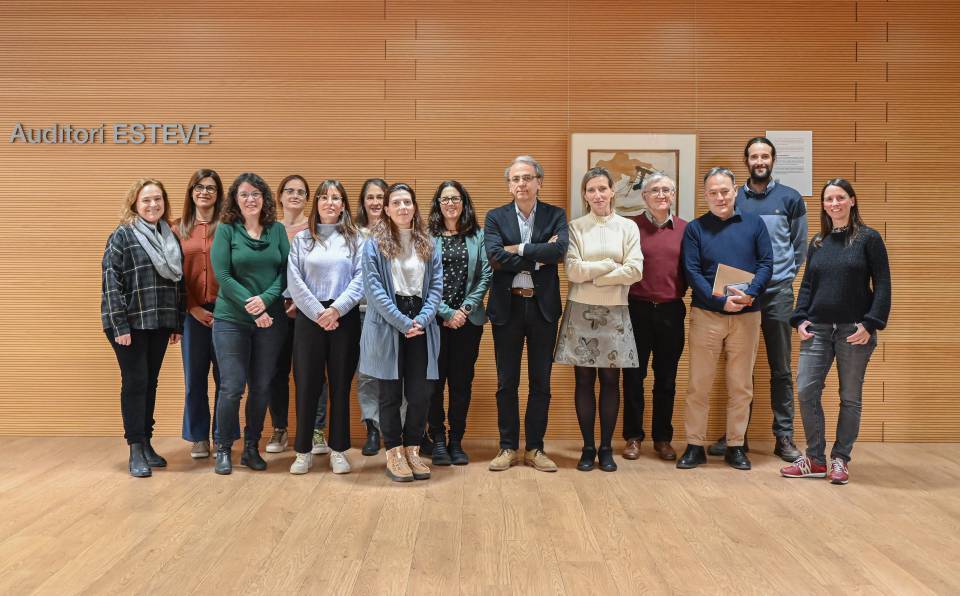The project involves Dr. Juan D. Cañete, from the Rheumatology Service at the Hospital Clínic and researcher in the IDIBAPS Inflammatory Joint Diseases (GRAI) group, together with Dr. Julio Ramírez, Dr. Ana B. Azuaga, Dr. Lucía Alascio and Raquel Celis, post-doctoral biologist, all of them belonging to the Arthritis Unit. The Project is funded by the European Foundation for Research in Rheumatology (FOREUM) with €600,000, and coordinated by Stefano Alivernini, from the Gemelli University Polyclinic in Rome. The other two centres participating, in addition to the Clínic-IDIBAPS, are the University of Glasgow and Newcastle University.
Chronic joint inflammation
Rheumatoid arthritis is an autoimmune disease that causes chronic inflammation of the joints and mainly affects the hands and feet. Despite advances in treatment, remission of the disease is not always achieved and over 50% of patients experience a reactivation of symptoms after reducing or stopping medication. “At present, there are no reliable biomarkers to identify in which patients it is possible to reduce or withdraw treatment without a risk of relapse”, says Dr. Cañete.
Predicting relapses with artificial intelligence
The Foreum-RA-Flare project aims to develop a method based on the multi-omics analysis of synovial tissue and blood cells, using single-cell RNA sequencing (scRNA-seq) and spatial transcriptomics technologies. Multi-omics analysis is an advanced technique that allows different types of genetic and molecular information on cells to be studied at the same time, providing a complete picture of their status.
These analyses will be combined with an explainable artificial intelligence algorithm to predict which patients have a higher risk of relapse and should, therefore continue with their treatment. Explainable artificial intelligence, an emerging technology, not only predicts outcomes, but also allows us to understand the factors behind those predictions, providing greater confidence in clinical decisions.
The study will involve patients who are in sustained clinical remission and who show no signs of joint inflammation by ultrasound. Using synovial biopsies and blood tests, the researchers will create a molecular atlas that will allow them to identify the specific biomarkers of the patients who could safely reduce or stop their treatment.
This project will also conduct a clinical trial comparing the use of this artificial intelligence to guide clinical decisions with the current standard treatment. “We hope that artificial intelligence will be able to predict more accurately which patients will maintain remission, thereby reducing the risk of relapse”, explains Dr. Cañete.
“This work could not only signify progress in the care of patients with rheumatoid arthritis, but also lay the groundwork for the use of artificial intelligence in other chronic inflammatory diseases”, concludes Dr. Cañete.




